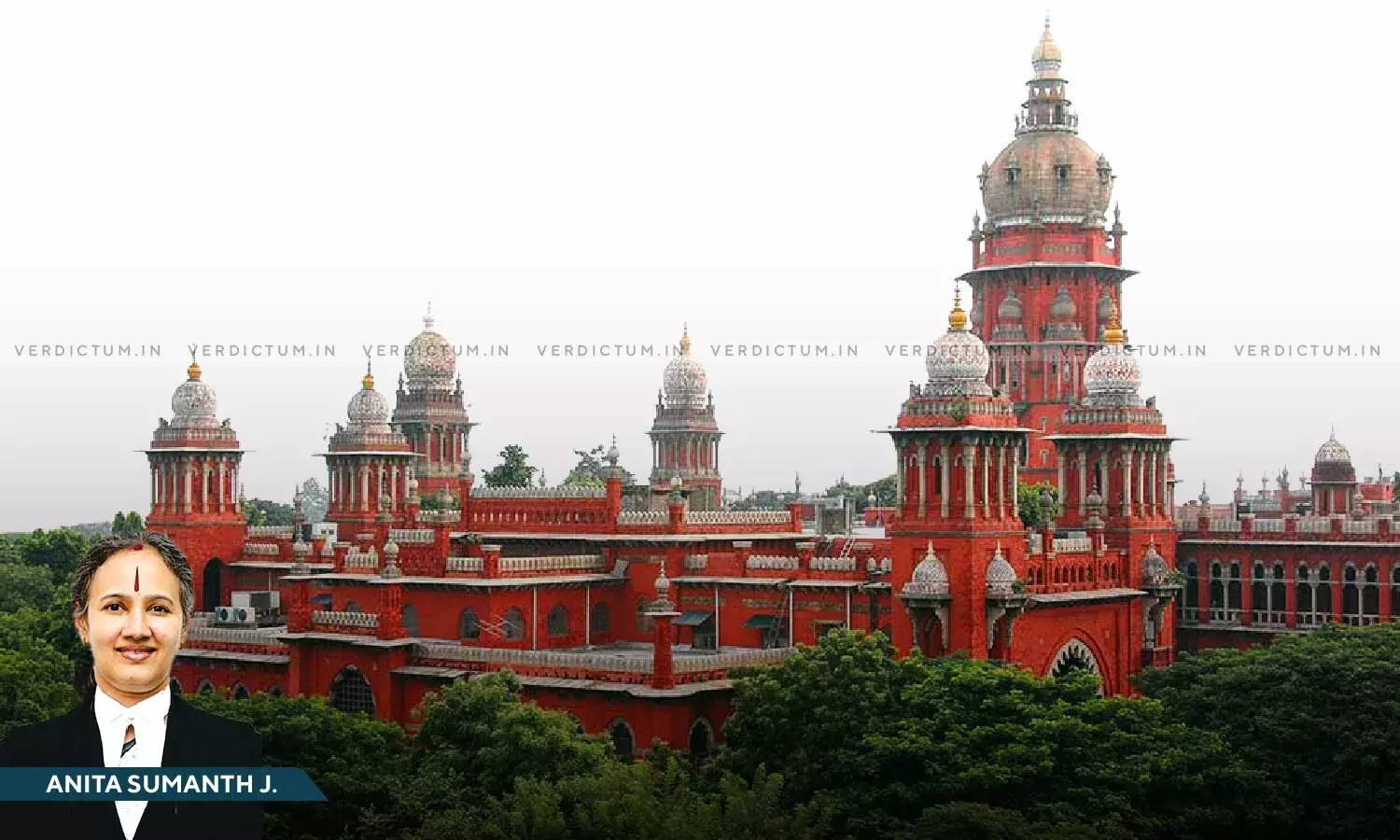Benefit Of RTE Act Is To Extend Education From Kindergarten To 8th Standard: Madras HC
The Madras High Court has directed the admission of two children of the “disadvantaged group” under the RTE observing that the benefit of the said act extended to children in kindergartens to 8th standard.
The Court directed the School authorities to grant admission to the children from the Scheduled Caste (Arunthathiyar) community characterised as the “disadvantaged group” in lower kindergarten with all the benefits under Section 2(d) of the Right of Children to Free and Compulsory Education Act, 2009 (RTE Act).
A Single Bench of Justice Anita Sumanth observed, “The State has suo motu, and appropriately, treated children who are below 6 years as well, as being entitled to the benefit of the Act. This, in fact, finds support from the proviso to Section 12(1) of the RTE Act, Extent of school’s responsibility for free and compulsory education, coming under Chapter IV, dealing with Responsibilities of Schools and Teachers which makes reference to 'pre-school education', thus, implying that the benefit of the Act is to extend to education from kindergarten to 8 th standard. It is thus this stipulation that would apply, irrespective of the age of the child.”
Advocate S. Lakshmi Narayanan appeared for the petitioner, while Addl. GP M. Rajendiran represented the respondents.
The petitioners (parents of the children) sought a mandamus against the Chief Educational Officer and other educational authorities in Coimbatore demanding the admission of their daughters under the RTE Act. They claimed that their online application for admission was rejected on the grounds that their residences were situated beyond one kilometre from the schools.
The Court clarified that the RTE Act was instituted as sufficient educational opportunities were not available to all sections of society. Therefore, the interpretation of the RTE Act “has thus to be made in a purposive manner so as to pursue that laudable object rather than to frustrate it.”
The Court noted that the petitioners after registering on the website, were able to select only one option of school and it was for this reason that multiple IDs were created and applications submitted.
“The mere fact that two applications have been made by the petitioner…is hardly of any consequence when the overall number of applications is well within the total number of options that could be exercised for choice of school. That apart, it is also common that persons use multiple mobile numbers and this too is of no consequence. Hence, this objection is misconceived and I find nothing untoward in the procedure followed by the petitioners,” the Court explained.
The Bench explained that the mere fact that the petitioners were residing beyond one kilometre from the school they applied at would not, by itself, come in the way of their applications being accepted.
Consequently, the Court held, “Since the categoric object of the Act is to make available education for children from pre-school to 8 th standard, it is this parameter that is paramount in understanding the application of the Act. The object of providing education for the children upto 8 th standard will override any technical concerns relating to the ages of the students itself.”
Accordingly, the High Court allowed the petition.
Cause Title: Deepak v. The Chief Educational Officer & Ors. (Neutral Citation: 2024:MHC:2875)




